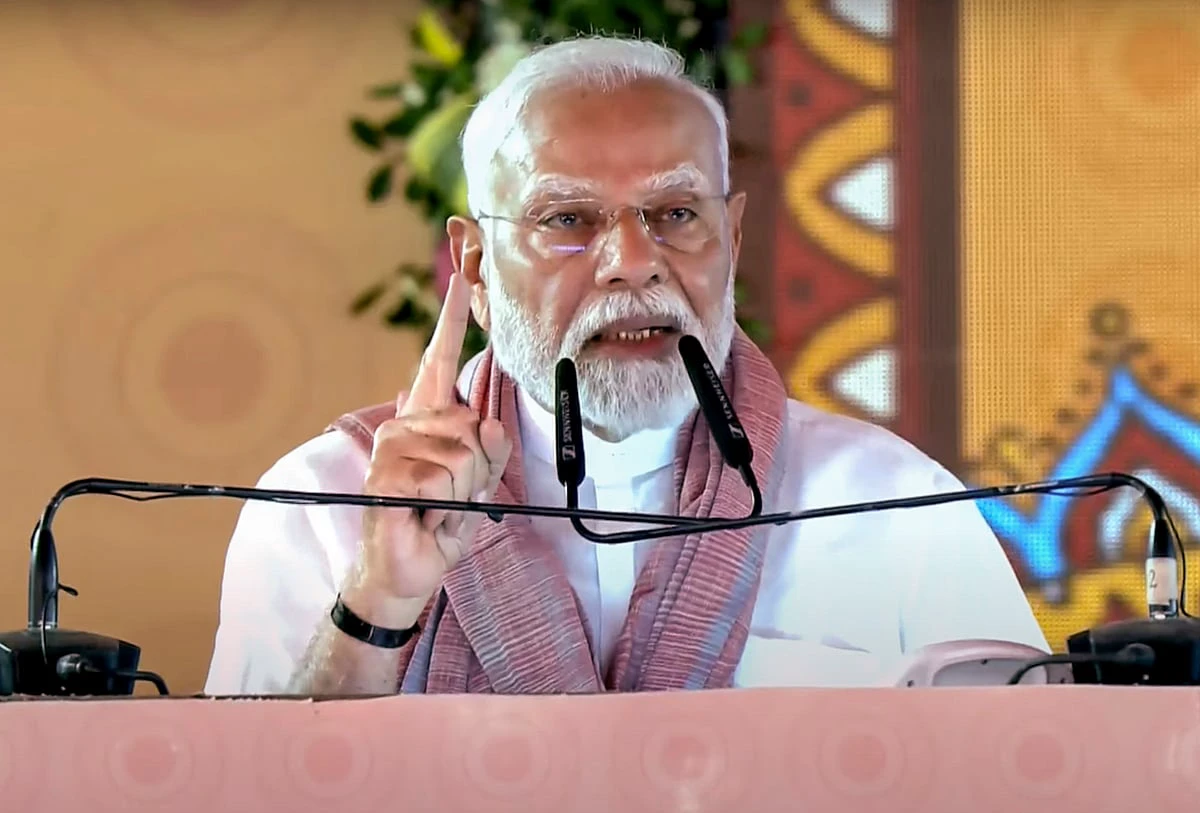BENGALURU: In his first public address after the Pahalgam terrorist attack, Prime Minister Narendra Modi, without directly naming Pakistan, said on Thursday in Madhubani, Bihar: “Ab atank wadiyon ki bachi khuchi zameen ko mitti mein milane ka samay aa gaya hai (it’s time to raze to ground whatever land is left with the terrorists).
He then, in a rare move, switched over to English to address the world, and said, “Today, from the soil of Bihar, I say this to the whole world, India will identify, trace and punish every terrorist and their backers. We will pursue them to the ends of the Earth.” It was a very strong message coming from Modi and was not rhetoric.
Having raised the pitch in a public rally, he will not scale it down. After the deadly Uri attack in September 2016, in which 19 soldiers were killed, India had launched ‘surgical strikes’ across the Line of Control (LoC) — targeting the militant launch pads in Pakistan-occupied-Kashmir (PoK). Three years later, in February 2019, after 40 Central Reserve Paramilitary Force (CRPF) personnel were killed in a suicide bombing attack in Pulwama, New Delhi responded with the Balakot airstrike hitting the militant camps deep inside Pakistan — their first since 1971. Pakistan responded with air raids, leading to a dogfight and the brief capture of the IAF pilot Abhinandan Varthaman.
While on the earlier two occasions, Modi did not openly challenge the perpetrators of terror attacks, this time he has spoken out his mind on a public platform. The winds of change are visible. In a historic move, Kashmiris reacted in solidarity against the Pahalgam attack. Businesses and educational institutions across the Valley were closed on Wednesday with Kashmiris holding protest rallies against terrorist attacks, pledging their allegiance to the tricolour and asserting that such heinous acts against innocent people were against the Kashmiriyat ethos and Islam. This is a befitting reply to Pakistan’s decades long anti-India propaganda on ‘Kashmir banega Pakistan’ and the recent desperate bid by their army chief Asim Munir, when he called Kashmir their “jugular vein.”
In dealing with Pakistan, India has military and diplomatic options. The former is not ruled out but when, how and where is the question. The movement of the INS Vikrant aircraft carrier towards the direction of Pakistan is an indication of building pressure on the adversary. India may call off the fragile 2021 LoC ceasefire leading to cross-border firing. There will be collateral damage to any military action but one cannot be risk averse when the stakes are high.
On Wednesday, the Cabinet Committee on Security (CCS) announced a series of retaliatory measures against Pakistan and suspended the 65-year-old Indus Waters Treaty (IWT) with Pakistan that allows the countries to irrigate their lands. Islamabad on Thursday called it “an act of war” and threatened to suspend its participation in all bilateral agreements with India, including the 1972 Simla Agreement — a peace accord, which was signed by the two countries soon after the formation of Bangladesh. This would imply the LoC will revert back to the old nomenclature of the ceasefire line. However, such a change in nomenclature will not change the situation on the ground. The Simla Agreement specifically seeks respect for the stated positions of both countries, not using force to alter areas of control, and not internationalising issues, but solving them bilaterally. Islamabad is guilty of violating all three pillars of the agreement since it was signed.
India has decided to hold the IWT in abeyance, which is permitted under the Geneva Convention to which India is a signatory. The suspension means India doesn’t have to share flood data with Pakistan. It can reduce the water flow to them and use the 20 percent water for its western rivers. Pakistan, as a result, will have lowered water flow, which will adversely affect its urban areas and agriculture.
India will need to do some diplomatic heavy lifting in the major capitals of the world if it wants to exercise its option of approaching the Financial Action Task Force (FATF) to once again put Pakistan on the grey-list in view of the continued existence of the jehad factory on its soil. If grey-listed, Pakistan would face serious hurdles in accessing international financial institutions and banks including the International Monetary Fund (IMF) and World Bank. This would further weaken its already troubled economy. The MEA has briefed ambassadors from major capitals on the Pahalgam attack and has sought their support.’Hum sab saath hain’: Rising above party lines, leaders assure support for Centre’s response to Pahalgam terror attack
